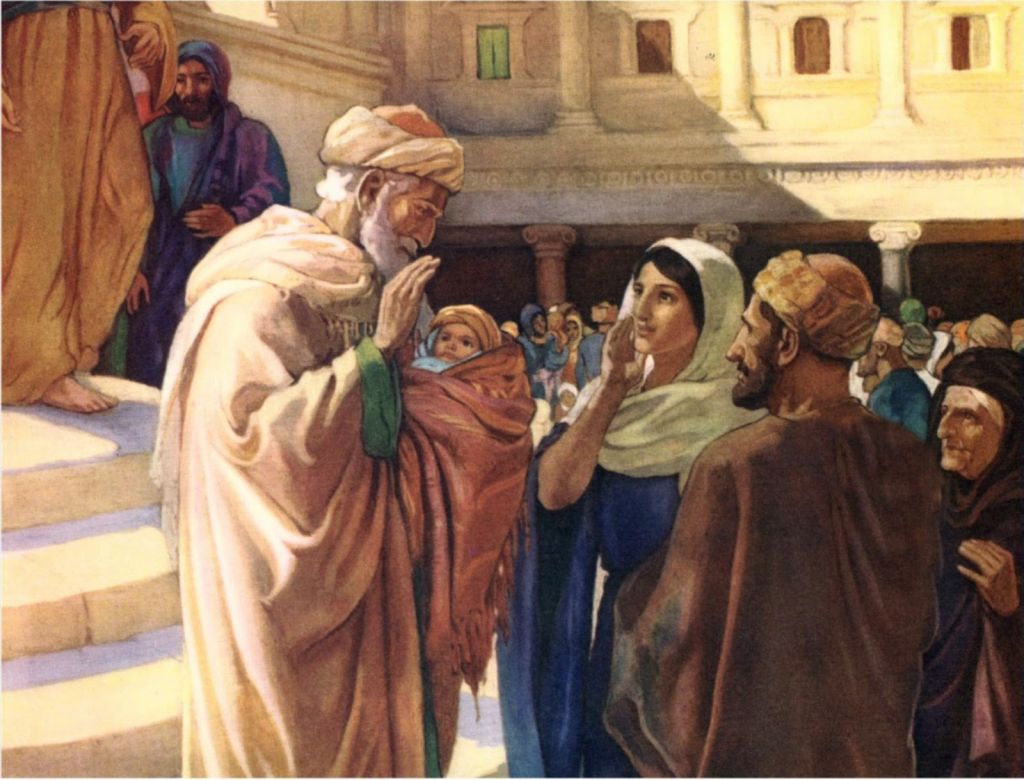
15 January 2015 by Tony Dibble-
1. The Book of Nahum
The three chapters in the Book of Nahum show the three parts of the prophecy about the destruction of Nineveh, the capital of the Assyrian empire. The first chapter is the straightforward warning of the destruction; the second chapter is about how the fall is to take place. The third chapter is a prophecy about the condition of the city, immediately after its fall. It was to become helpless: Nineveh was to be deserted by nearly every one of its defenders and its traders. They fled like locusts and grasshoppers, which desert their habitat the moment it becomes warmed by the sun.
Nahum’s prophecy is also a living word about GOD’s attributes. In particular, it reveals His justice, mercy, patience and forgiveness. The book also records GOD’s aim for the ultimate destruction of all that is evil. However, GOD’s concept of justice also requires that wrongs be righted and paid for. They are not to continue without any repentance and sorrow. GOD is a no-nonsense Person. He will not be manipulated. Nahum also shows that GOD is aware of the persecution and intimidation experienced by His people. The book testifies ultimately about the Sovereignty of GOD over all things.

2. GOD’s Dealings with Nineveh: Mercy , Forgiveness and Vengeance
Nineveh was located near present-day Mosul, Iraq. Jonah prophesied to the city around 760 BC and the people repented. However, this repentance did not last for perhaps, more than 60 years. The people had become backslidden in their relationship with GOD. As Matthew Henry, the 17th century Bible commentator suggested, the Assyrians possibly took GOD for granted, because He appeared to them to be slow in becoming angry. Nahum’s prophecy was made about a hundred years after Jonah’s. The spiritual state of the city had again, deteriorated. This time however, there was going to be no second chance. GOD’s mercy and forgiveness had been openly mocked (Gal 6:7).
3. Nineveh and the Assyrian Empire
The Assyrian empire was the largest in its day; but it was also the cruellest during its time (3:19). It stretched all the way, in the shape of a bulging crescent at one end, from present-day Iraq (as far north as the southern part of Armenia) into Egypt. It was famous for its military prowess. Its chariots were reported to have steel blades in their wheels that would rout the wheels of their enemy’s.
The city of Nineveh stretched over what would take a three-day journey (Jonah 3:3). Archaeologists report that the city’s walls were so wide that four chariots could ride alongside on its main walls. The city was also said to have had a moat, which was about 150 feet wide and possibly 60 feet deep. Nineveh lasted for up to twenty years after Nahum’s prophecy. This again, was another example of the extent of GOD’s patience. The break up of the whole Assyrian Empire then extended over a three-year period.

4. Political Impact of Assyria on GOD’s People
People whom the Assyrians had conquered were often uprooted and transported to other parts of the Empire and enslaved. These victims were often mutilated and skinned.
Judah (Southern Israel) lived in fear of Assyria. It reluctantly became one of twenty-two suppliers of building materials for the construction of the Assyrian King’s palace. Judah had seen how Assyria had attacked and enslaved Northern Israel. Judah, in Assyria’s view, was a potential ally to any of the insurgent territories. Hence, Judah needed to be subjugated. The Assyrians had destroyed many cities in Judah. In 701 BC, they besieged Jerusalem for a while, but had been drawn away by the trouble in other territories. Judah’s wicked King Manasseh (697-642 BC) was for a time, enslaved in Assyria. He was sent there in chains and double fetters until he repented (2 Chr 33:10-13). His own people were also disobedient to GOD. Hence, Judah lived under the shadow of Assyria during the early 7th and 8th centuries BC. Then, Nahum prophesized to Judea that Nineveh was going to fall to its enemies. This was GOD’s assurance to Judah that He would deliver His people. In August 612 BC, the dams overflowed the city, just as Nahum had prophesied (1:8; 2:6). This presented the Medes and the Babylonians the opportunity to invade the capital through the cracks in the city’s walls.

5. GOD the Stronghold
GOD is good and is a strong defence in times of trouble for those who trust in Him (1:7). He recognises those that put their trust in Him. GOD may humble us but He knows the limits to which we could endure tribulation (1:12 & 13). GOD will restore His people from such tribulation and oppression (2:2). This only happens if we maintain our commitment to Him even when under adversity (1:15).
6. The Anger of GOD
GOD is slow in getting angry and His power is great (1:3a). He is slow to anger as He wants us to repent. He makes no distinction on whom His patience falls (Numbers 14:18). However, He does not leave the guilty unpunished in the long term (1:3b). When that punishment is delivered, it would prove to be totally destructive. Just as Sodom and Gomorrah gave GOD a new sin, so GOD gave the inhabitants of these twin cities a new punishment: He gave them hell on earth to the point where the land became desolate and inhospitable (Gen 19:24 & 25).

7. GOD and Evil
GOD’s anger and fury will see the destruction of evil (1:6). This applies both to the present as well as to the end of civilisation (Rev 21:5). It applies to the material and the spiritual realms. Evil is a defeated power because of Calvary’s cross (John 19:30; Rom 8:1). The enemy’s reputation will not survive; nor would any of their idols see the light of day. GOD will ultimately put an end, now or later, to those who are evil. Unless one repents, evil will catch up in this world, if not in the next. GOD pursues His enemies to obliteration (1:8). He will bring disgrace on the enemy and expose their impotence, making them a complete spectacle(3:5-7,19).He would imprison and exterminate His enemies (3:10) who are ever ready to fall (3:12).The enemy’s supporters would desert them (3:16-18). There will be no cure (3:19) for the damage and destruction the enemy would encounter. No second chance would be given to His enemies (1:9& 10) in view of the continual evil practised. Though GOD permits our enemies to afflict us, He would ultimately break the hold that they may seem to have on us (1:13).

8. GOD and Nature
GOD is Interventionist. He is active in nature and His actions may move from one extreme to another. Bashan, Carmel and Lebanon are viewed as symbols of fertility (1:4) but if GOD willed, these very icons could turn out to be unproductive. He can intervene in nature as He wills, in order to have it fulfil His plans and His glory. GOD’s presence causes the earth and its people to tremble because His presence is overwhelming (1:5). Nothing and no one is spared from GOD acting out in our lives. He does not sit on the sidelines as though helpless to intervene. The water courses of Nineveh’s dams were subjected to a flood which none of the city’s planners could ever have envisaged. The walls of the city then cracked; the enemy moved in.
9. Conclusion
Herbert Butterfield, the Cambridge historian, wrote as follows: “The hardest strokes of heaven fall in history upon those who imagine that they can control things in a sovereign way.…” Christianity and History, p 104 (London: G. Bell & Sons, 1949). No one but GOD is Sovereign. The fall of Assyria is revelation that pride, manifested in ambition and greed, and leading to wickedness, constitutes a sure formula for destruction by GOD, in His time. In a sense, the prophecy against Nineveh was meant to be an advanced celebration by Judah, of that city’s destruction.

Note: Tony Dibble worships at Endeavour Christian Gathering, in Perth, Western Australia. Prior to this, he was attending the Church of Our Holy Saviour, Labuan, East Malaysia. When in Kuala Lumpur, he worships at Faith Oasis Fellowship (FOF) Subang Jaya, Selangor.
| Share the Good News |




This was a great read and context to the fall of the Assyrian Empire. Thank You and God bless your ministry, in Christ!